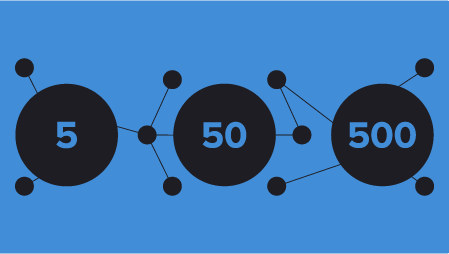Data has shown that there is a growing Data Science talent shortage.
Organizations are having a hard time finding the right talent for their data science roles. In this series, you will find several blogs which aim to address the question of ‘how to get into data science?’. This will range from mastering the data science interview loop, strategies for learning about data science, and explaining the most relevant skills for data science.
Data analysts turn data into information. They play a vital role by making data actionable for decision makers. Data analysts often take data provided by data engineers, analyze it, and make recommendations. They create visualizations to display their findings in dashboards and presentation. Unlike data scientists, data analysts don’t usually create predictive models based on machine learning algorithms.If you want to become a data analyst or make yourself more marketable, this article suggests you learn the certain technologies, in order of priority.
Interviews can be nerve wrecking, especially when it comes to Big Data. But as someone who has spent decades in this industry, I think it doesn’t have to be. If one is prepared, then it can just turn out to be a good dialogue and explain your value to prospective employers. But as they say, one who has prepared well has half won the battle! So to make things easier, I’m going to share a few questions that I’ve been asked over the years and some that I used while interviewing candidates when building a data science team. And by no means are they exhaustive.
I recently discovered data science practice problems on Analytics Vidhya. These allow you access to simple datasets on which to practice your machine learning skills and benchmark yourself against others. I think they offer a great introduction to approaching these problems before perhaps moving onto something a bit more challenging such as Kaggle competitions.
Leveraging the use of big data, as an insight-generating engine, has driven the demand for data scientists at enterprise-level, across all industry verticals. Whether it is to refine the process of product development, help improve customer retention, or mine through the data to find new business opportunities—organizations are increasingly relying on the expertize of data scientists to sustain, grow, and outdo their competition. Consequently, as the demand for data scientists increase, the discipline presents an enticing career path for students and existing professionals. This includes those who are not data scientists but are obsessed with data, which has left them asking:
The most important thing to learn to become a Data Scientist is the pipeline, i.e, the process of getting and processing data, understanding the data, building the model, evaluating the results (both of the model and the data processing phase) and deployment. Learn Logistic Regression first to become familiar with the pipeline and not being overwhelmed with fancy algorithms. So here are 5 reasons why we should start with Logistic Regression first to become a Data Scientist.
Experfy Insights
Top articles, research, podcasts, webinars and more delivered to you monthly.
Leave a Reply Cancel reply

Introduction Access to and control of data is one of the biggest challenges faced by data analysts and data scientists. Creative, persistent analysts find ways to get access to at least some of this data but doing that efficiently in a way that is also standardized and centralized for everyone on the team is difficult.

Introduction Prediction is a tricky business. You have to step outside of your comfort zone, your fainted vision of the world and see it thorough across all possible dimensions. In this series, we will discuss the future of “AI”, applications that are yet unexplored.

Introduction: Humans are wired to make tough decisions bringing all the context and principles to bear. Similarly, can devices apply the available information to make the right judgment calls? In this series, we shall discuss some ethical dilemmas faced by emerging technologies.
Incubated in Harvard Innovation Lab, Experfy specializes in pipelining and deploying the world's best AI and engineering talent at breakneck speed, with exceptional focus on quality and compliance. Enterprises and governments also leverage our award-winning SaaS platform to build their own customized future of work solutions such as talent clouds.
1700 West Park Drive, Suite 190
Westborough, MA 01581
Email: support@experfy.com
Toll Free: (844) EXPERFY or
(844) 397-3739
